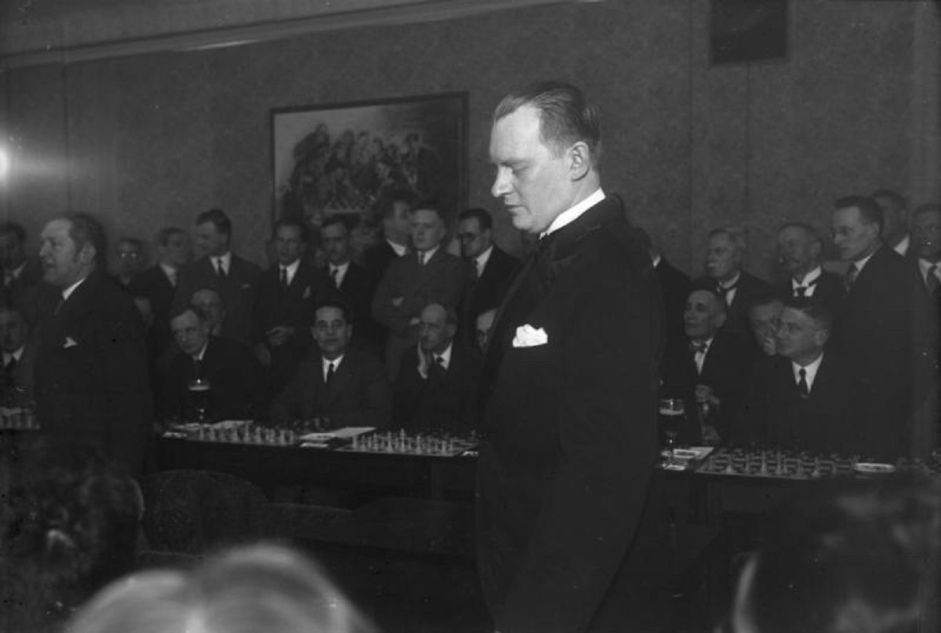Since the beginning of 1946, the world chess champion Alexander Alekhine had lived alone in the Portuguese tourist town of Estoril. He suffered from a lack of money; he was tormented by illness and alcoholism, boycotted by his colleagues. In early March, he arrived in Lisbon at the invitation of the British Embassy, where he was handed a letter delivered through diplomatic channels.
The letter said:
“Mr A. Alekhine!
I regret that the war prevented the conduct of our match in 1939. Nevertheless, I would like to challenge you to a match for the world chess championship one more time.
If you agree, my authorised representative and the Moscow Chess Club will negotiate with you or your representative on the account of the conditions, date, and venue of the match, preferably with the participation of the British Chess Federation.
I am waiting for your reply. Please, kindly express your preferences regarding the date and venue of the match. I am asking you to send a reply telegram to the Moscow Chess Club followed by postal acknowledgement.
February 4, 1946
Mikhail Botvinnik”
For Alekhine the invitation by the Soviet chess player meant that he was allowed to return to world chess and the boycott had ended.
The reason Alexander Alekhine found himself isolated was his collaborationism with the Nazi administration in France. Since 1920, he had lived outside the USSR, mainly in France. The war caught him in Argentina while at a tournament. The chess player returned to Paris and volunteered for the army. After the defeat of French forces, he moved to the south of the country controlled by the Vichy collaborationist government. Here the world champion published a number of articles and gave several interviews, where he contrasted “Aryan chess” with “Jewish” chess, strictly following the principles of the Nazi’s racial theories.
In 1942-1943 Alekhine mainly lived in Prague. He gave sessions of simultaneous games to Wehrmacht officers, received the patronage of Hans Frank, Governor-General of the occupied Polish territories (a defendant at the Nuremberg Trials). Starting at the end of 1943, Alekhine mainly lived in Spain and Portugal and participated in chess tournaments as a representative of the Third Reich.
He later put down his actions to fearing for the safety of his wife who was an American-Jewish woman. As a result, the world's largest community of chess players and chess federations boycotted Alekhine.
After World War II ended, an international commission was established to investigate the world champion’s collaboration with the Nazis. The commission had to settle the question of revocation of Alexander Alekhine’s champion status. In France, they wanted him to be tried as a traitor since he was a citizen and a soldier of this country.
Only Britain and the USSR showed the great chess player leniency. At the end of 1945, he was invited to a tournament in England, but then the invitation was withdrawn due to several threats from other chess players to boycott the competition.
The letter from the Soviet champion Mikhail Botvinnik, dated 4 February, was received by Alexander Alekhine in early March from the staff of the British Embassy in Lisbon. Alekhine immediately sent a reply telegram, where he agreed to participate in the match.
On 23 March, the International Chess Federation (FIDE) approved the Alekhine – Botvinnik match. But the next day Alexander Alekhine was found dead in his hotel room in Estoril – sitting in an armchair in front of his chessboard. According to the official version, death occurred due to asphyxia caused by a piece of steak stuck in his throat.
Sources:
webchess.ru
























